Gardening in your own backyard has numerous benefits that can bring joy and fulfillment to your life. Cultivating your own food promotes sustainability, reduces reliance on the global food system, and minimizes environmental repercussions. It also adds natural beauty and tranquility to your surroundings, enhances mental well-being, and promotes a healthier diet.
Gardening can be done anywhere, regardless of available space, and can be a therapeutic and stress-relieving activity. It also allows you to save money by growing your own produce, herbs, and flowers. Gardening teaches patience, careful watchfulness, industry, and thrift, while also providing a sense of accomplishment and deeper purpose.
Furthermore, gardening connects you with nature, allows you to appreciate its wonders, and fosters a sense of community and connection with others. Overall, embracing your green thumb and starting a garden in your own backyard can bring immense joy and satisfaction to your life.
Key Takeaways
- Gardening in your own backyard promotes sustainability, reduces reliance on the global food system, and minimizes environmental repercussions.
- It adds natural beauty and tranquility to your surroundings, enhances mental well-being, and promotes a healthier diet.
- Gardening can be a therapeutic and stress-relieving activity and allows you to save money by growing your own produce, herbs, and flowers.
- Gardening teaches patience, careful watchfulness, industry, and thrift, while also providing a sense of accomplishment and deeper purpose.
- Gardening connects you with nature, allows you to appreciate its wonders, and fosters a sense of community and connection with others.
Gardening Tips for Beginners
If you’re new to gardening, don’t worry – I’ve got you covered with some essential gardening tips to help you get started on the right foot. Gardening can seem overwhelming, but with a little patience and perseverance, you’ll soon be reaping the rewards of your own beautiful green space.
Choose the right plants: When starting out, it’s best to choose plants that are easy to grow and maintain. Look for plants that are labeled as “beginner” or “low-maintenance” and consider the climate and soil in your area.
Prepare the soil: Good soil is the foundation for a successful garden. Make sure your soil is loose and well-draining, with plenty of organic matter like compost or aged manure. Test the pH level of your soil and amend it as needed.
Watering techniques: Water your plants deeply and infrequently, rather than giving them frequent shallow drinks. This will encourage strong root growth and prevent water waste.
Proper sunlight exposure: Different plants require different amounts of sunlight. Study the plant tags or do some research to find out how much sunlight your plants need and arrange them accordingly.
Basic maintenance: Regularly remove weeds, deadhead flowers, and pinch back wayward growth to keep your plants healthy and looking their best. Don’t be afraid to prune, but make sure you know the right techniques for your specific plants.
Remember, gardening is a learning process, and it’s okay to make mistakes. With these tips and a little experimentation, you’ll soon be on your way to a successful garden.
Gardening Tips for Beginners:
Gardening can be intimidating for beginners, but starting with easy-to-grow plants and following these essential tips will help build your confidence and increase your chances of success.
Essential Gardening Tools Every Gardener Should Have
To make your gardening journey smooth and enjoyable, make sure you have these essential gardening tools at your disposal:
| Tool | Description |
|---|---|
| Hand Trowel | A must-have tool for digging small holes, planting bulbs, and transplanting seedlings. Look for a sturdy, stainless steel trowel with a comfortable grip. |
| Garden Fork | Great for turning and cultivating soil, as well as for loosening roots and breaking up clumps. Opt for a fork with sharp, sturdy tines. |
| Pruning Shears | Perfect for trimming and shaping plants, as well as for removing dead or damaged branches. Choose a pair with sharp, bypass blades for clean cuts. |
| Garden Gloves | Protect your hands from thorns, prickly plants, and rough surfaces with a good pair of Garden Gloves. Look for gloves that are durable and offer a snug fit. |
| Garden Hoe | Essential for clearing weeds and cultivating soil. Choose a hoe with a sharp blade and a long, sturdy handle for easy use. |
| Watering Can | Keep your plants hydrated with a watering can that has a balanced design and a comfortable grip. Look for a can with a removable rose attachment for gentle watering. |
| Garden Rake | Useful for leveling soil, removing debris, and creating smooth planting beds. Opt for a rake with sturdy tines and a comfortable handle. |
| Garden Pruners | Ideal for cutting through thicker branches and woody stems. Choose pruners with a bypass blade design for clean, precise cuts. |
| Garden Spade | Perfect for digging large holes, edging borders, and turning soil. Look for a spade with a sharp blade and a strong, durable handle. |
| Wheelbarrow | A handy tool for transporting heavy bags of soil, mulch, and other materials. Choose a wheelbarrow with sturdy construction and large, inflatable tires for easy maneuverability. |
Having these essential gardening tools in your arsenal will set you up for success in your gardening endeavors. Invest in quality tools that are built to last, and you’ll be well-equipped to create a beautiful and thriving garden.
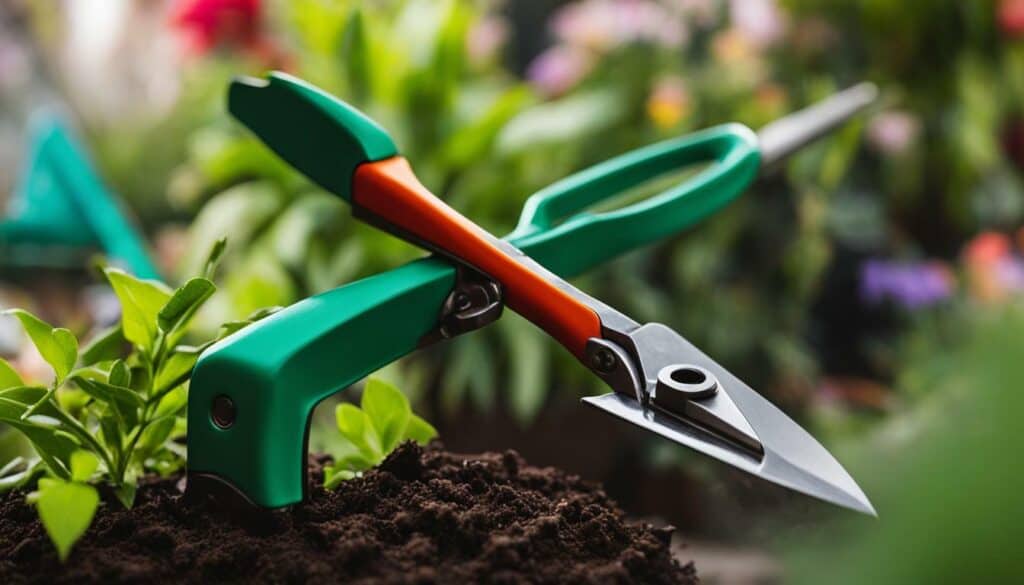
Creative Gardening Ideas for Your Backyard Oasis
Let your imagination run wild with these creative gardening ideas that will turn your backyard into a captivating oasis. Whether you have a small balcony or a spacious yard, these gardening ideas will inspire you to transform your outdoor space into a natural wonderland.
Vertical gardening is a great way to maximize space and add a visual interest to your garden. You can create a living wall by mounting planters on a fence, wall, or even a pallet. Herbs, succulents, and ferns are great choices for vertical gardening, as they thrive in tight spaces and require minimal maintenance.
| Vertical Gardening | Container Gardening |
|---|---|
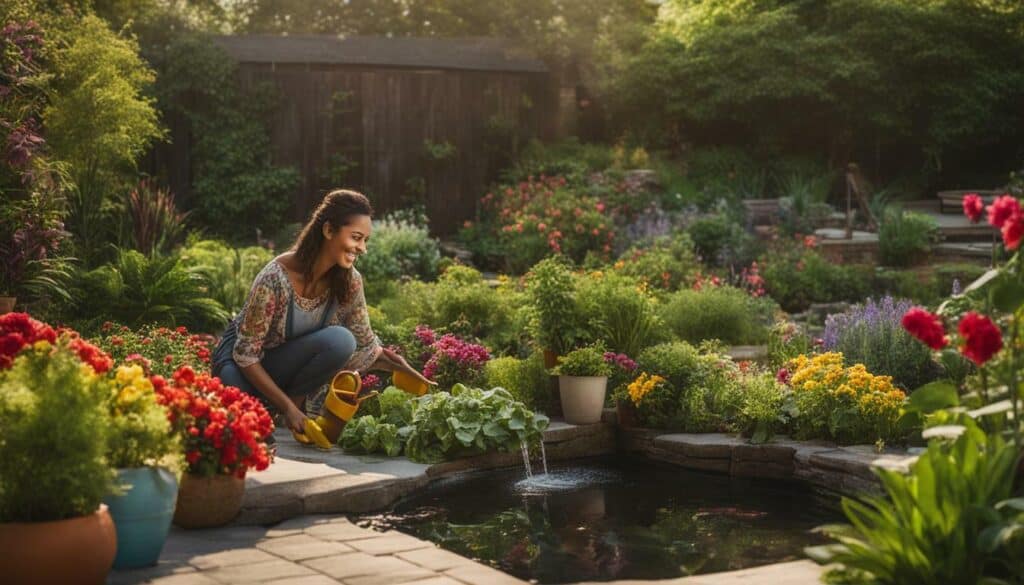 |  |
Container gardening is another way to create a stunning backyard oasis. You can use any container, from an old bathtub to a ceramic pot, to grow herbs, flowers, or vegetables. Be creative with your plant choices and mix different heights, colors, and textures to add interest.
Themed gardens are a great way to showcase your personality and add a unique touch to your backyard. You can choose a color scheme, a favorite plant, or a season as a theme for your garden. For example, a butterfly garden can attract these beautiful insects with specific flowers and plants. A fairy garden can be created with miniature plants, tiny houses, and bridges.
Incorporating decorative elements such as garden sculptures, fountains, or pathways can add a focal point to your garden. Use natural materials such as stone, wood, or gravel to create a harmonious look with your plants.
Finally, don’t be afraid to mix colors and textures to create a one-of-a-kind garden. You can also use recycled materials such as old tires, pallets, or bottles to add a sustainable touch to your backyard.
With these creative gardening ideas, you can transform your backyard into a stunning oasis that will promote sustainability, enhance your well-being, and provide a source of healthy and delicious food.
Exploring the World of Organic Gardening
Dive into the world of organic gardening and discover the benefits of growing food naturally and sustainably. Organic gardening offers numerous benefits, including sustainability, beautiful green spaces, healthier living, cost-efficiency, and the opportunity to reconnect with nature. It promotes mental well-being and reduces stress, while also providing an opportunity to save money by growing one’s own food. Organic gardening can be done anywhere, regardless of available space. It cultivates a sense of empowerment and skills development, and encourages environmental practices, such as reducing food waste and employing sustainable techniques. It also offers a sense of accomplishment, stress relief, and an appreciation for nature.
Organic gardening can be physically demanding, but provides exercise and the opportunity to grow healthy, chemical-free foods. Additionally, it allows individuals to unplug from technology and appreciate quiet time. Gardening can bring joy and happiness into one’s life, offering a deeper purpose and connection with the natural world. It provides mental, spiritual, and physical nourishment, making it a necessity in multiple ways. Gardening fosters a sense of community and connection with others, as well as with the soil and nature itself.
When practicing organic gardening, it is crucial to avoid synthetic chemicals and promote soil health for long-term success. Organic pest control, natural fertilizers, and composting are effective ways to maintain a healthy garden ecosystem. Embrace the pleasure of growing food naturally and sustainably, and enjoy the sense of accomplishment and satisfaction it brings.
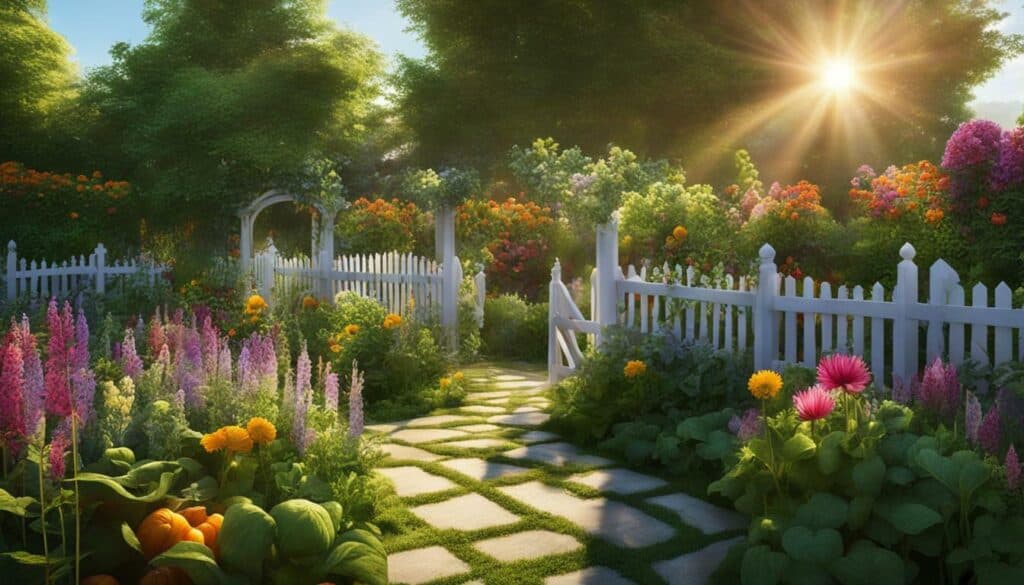
“The ultimate goal of farming is not the growing of crops, but the cultivation and perfection of human beings.” – Masanobu Fukuoka
Thriving in the Concrete Jungle: Urban Gardening Tips
Living in a bustling city doesn’t mean you can’t enjoy the pleasures of gardening – these urban gardening tips will help you thrive in the concrete jungle.
Urban gardening is a wonderful way to create a green space in any area, no matter how small. It’s an opportunity to get in touch with nature, reduce stress, and improve mental well-being. Not to mention, urban gardening helps promote sustainability, save money, and improve personal health by providing fresh produce.
One of the biggest advantages of urban gardening is that it’s possible to grow your own food in any space. Even if you live in a small apartment, you can still grow herbs and vegetables on a windowsill, balcony, or roof terrace. With a bit of creativity, you can create your own urban oasis, no matter where you live.
To get started with urban gardening, it’s important to choose plants that are suitable for your space. Consider the amount of sunlight and shade your plants will receive, as well as the amount of space they’ll need to grow. Some great options for small spaces include herbs such as basil, parsley, and mint, as well as leafy greens like lettuce and spinach. Tomatoes, peppers, and cucumbers can also be grown in containers in sunny spots.
When it comes to soil, it’s important to choose the right type for your plants and to use high-quality compost to nourish them. Urban gardeners must also take pest control into consideration, especially as urban environments can attract pests such as aphids and spider mites. Natural pest control methods, such as introducing ladybugs or using neem oil, can be effective in minimizing damage to plants.
Urban gardening is a great way to engage in sustainable practices, such as composting and using rainwater for irrigation. Composting your kitchen scraps can help nourish your plants and reduce food waste. Additionally, using rainwater for irrigation can help conserve water and promote sustainability.
Whether you’re a seasoned gardener or just starting out, urban gardening offers a unique opportunity to connect with nature and promote sustainability. By using creative techniques and sustainable practices, you can create your own urban oasis and reap the many rewards of gardening in the city.
Discover the Beauty of Indoor Gardening
Bring the beauty of nature inside your home with indoor gardening – here are some tips to help you create a flourishing indoor garden.
Indoor gardening is an excellent way to promote sustainability and enhance the aesthetic value of your living space. It is a therapeutic and stress-relieving activity that can result in numerous benefits to your mental and physical well-being. Indoor gardening can also save money by reducing grocery bills and floral expenses.
Regardless of the available space, anyone can embark on the journey of indoor gardening and enjoy its numerous benefits. Cultivating your own plants instills a sense of self-sufficiency, independence, and accomplishment, making it a valuable opportunity for skill development. It also encourages environmental practices such as reducing food waste and employing sustainable techniques like composting and natural pest control.
Growing your own food enables you to have more control over what you consume, promoting healthier eating habits and a deeper appreciation for nature. Engaging in indoor gardening provides a sense of purpose and a chance to unplug from the noise of modern life.
Discovering the beauty of indoor gardening offers a range of benefits and joys. It adds natural beauty and tranquility to your surroundings, promoting a healthier and more aesthetically pleasing living space.
Overall, starting an indoor garden allows you to connect with nature, find joy in nurturing plants, and experience the multitude of rewards it brings.
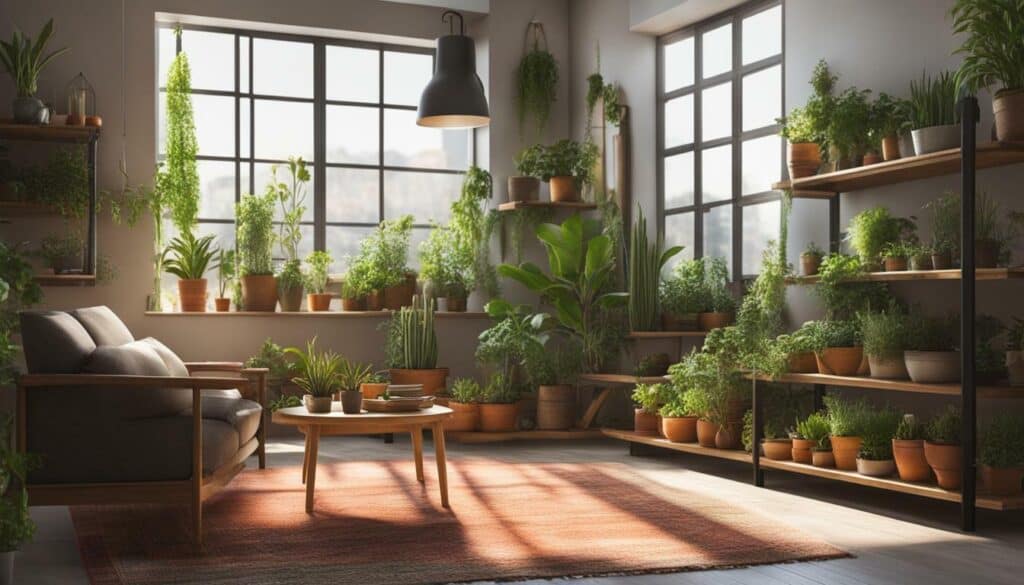
Cultivate Your Own Vegetable Garden
Indulge in the joys of vegetable gardening and savor the taste of homegrown produce with these essential tips. Cultivating your own vegetable garden can bring a multitude of benefits to your life. It promotes sustainability, as it reduces reliance on the global food system and minimizes environmental repercussions. Having a garden also adds beauty and tranquility to your surroundings, improving the aesthetic appeal of your space. It can serve as a therapeutic and stress-relieving activity, enhancing your mental well-being. Growing your own produce can save you money by reducing grocery bills and ensuring a healthier diet. Regardless of the available space, you can start a garden and enjoy the numerous benefits it brings. Gardening can also cultivate a sense of empowerment and skill development, as well as promote environmentally friendly practices such as composting and rainwater harvesting. Lastly, gardening allows you to reconnect with nature and appreciate its wonders while providing a sense of accomplishment and a deeper purpose in life.
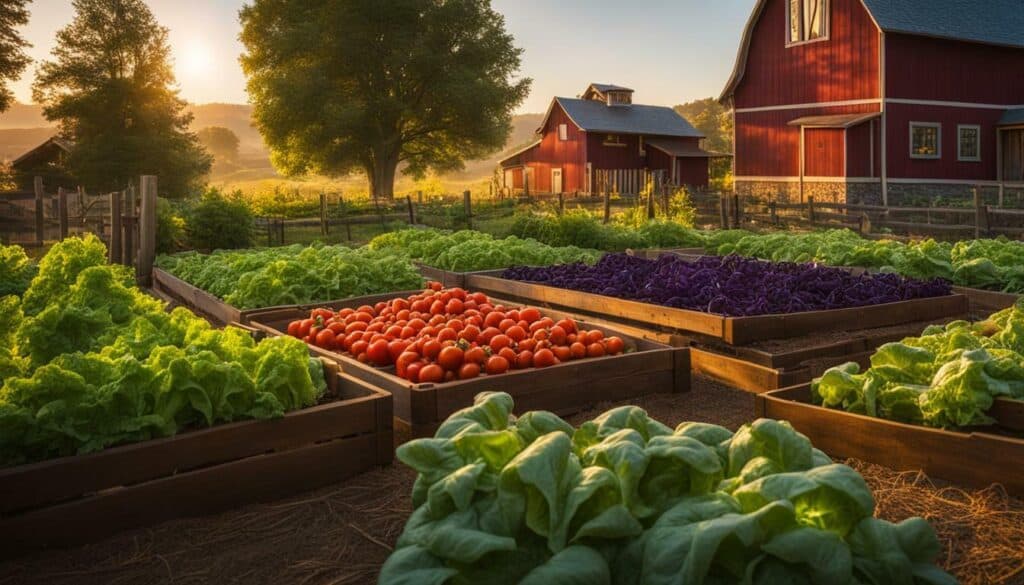
Starting a vegetable garden is not as complicated as it may seem. Here are some tips to help you get started:
| Step | Task |
|---|---|
| 1 | Choose the right location for your garden. This should be a spot with ample sunlight and well-draining soil. |
| 2 | Select the vegetables you want to grow. Consider the climate and seasonality of your area when making your choices. |
| 3 | Prepare the soil by removing any weeds and adding compost or organic matter. This helps improve soil quality and retain moisture. |
| 4 | Plant your vegetable seeds or seedlings according to the instructions on the packaging, taking into account proper spacing and depth. |
| 5 | Water your garden regularly and provide adequate drainage. Avoid overwatering, which can lead to root rot and other problems. |
| 6 | Control pests naturally by using companion planting, organic pesticides, and other eco-friendly methods. |
By following these simple steps, you can enjoy the fruits of your labor and reap the numerous benefits of vegetable gardening. Not only will you have access to fresh and healthy produce, but you’ll also be contributing to the sustainability of our planet and fostering a deeper connection with nature.
Conclusion
Gardening, regardless of the style or scale, can enrich your life in countless ways. It promotes sustainability by reducing reliance on the global food system and minimizing environmental impact. A garden brings natural beauty and tranquility to surrounding areas, providing a therapeutic and stress-relieving activity that contributes to improved mental well-being. Additionally, growing your own food can save money and reduce reliance on processed foods. Gardening is accessible to everyone and cultivates a sense of empowerment, self-sufficiency, and accomplishment while facilitating skill development and learning.
Starting a garden allows for the employment of sustainable practices and actively participates in reducing food waste. It is a fulfilling and rewarding experience that brings joy and benefits to one’s life. Gardening fosters a connection to nature and may inspire a greater appreciation for the environment.
FAQ
Q: What are the benefits of gardening in your own backyard?
A: Gardening in your own backyard promotes sustainability, adds natural beauty to your surroundings, provides therapeutic and stress-relieving activities, saves money on grocery bills, and cultivates a sense of empowerment and skills development.
Q: Can gardening be done anywhere, regardless of available space?
A: Yes, gardening can be done anywhere, regardless of the available space. Even if you only have a small balcony or a windowsill, you can still enjoy the benefits of gardening.
Q: How does gardening contribute to reducing food waste and employing sustainable practices?
A: By growing your own food, you can reduce reliance on store-bought produce and contribute to reducing food waste. Additionally, employing sustainable practices such as composting and using organic pest control methods can further minimize environmental impact.
Q: What other benefits does gardening provide?
A: Gardening provides a sense of accomplishment, serves as a stress relief, helps you appreciate nature, and gives you a deeper purpose. It also offers an opportunity for learning and improving physical health.
Q: Can gardening save money on grocery bills?
A: Yes, growing your own food can save you money on grocery bills as you can harvest fresh produce from your garden instead of buying it from the store.
Q: Is gardening suitable for beginners?
A: Absolutely! Gardening is suitable for beginners. With some basic knowledge and guidance, anyone can start their own garden and enjoy the rewards of growing their own plants.
Q: What are some essential gardening tools every gardener should have?
A: Essential gardening tools include a trowel, pruners, a watering can or hose, gloves, and a garden rake. These tools help with planting, maintaining, and caring for your garden.
Q: Are there any creative gardening ideas for transforming my backyard?
A: Yes, there are plenty of creative gardening ideas to transform your backyard. Ideas include vertical gardening, container gardening, creating themed gardens, incorporating decorative elements, and using unique plant combinations.
Q: What is organic gardening and what are its benefits?
A: Organic gardening is a method of growing plants without the use of synthetic chemicals. It promotes soil health, biodiversity, and personal well-being. Organic gardening also helps protect the environment by avoiding the use of harmful substances.
Q: Can gardening be done in urban settings?
A: Yes, gardening can be done in urban settings. Techniques such as container gardening, vertical gardening, rooftop gardens, and community gardening are suitable for overcoming space limitations in cities.
Q: Can I garden indoors?
A: Yes, indoor gardening allows you to bring the beauty of plants into your home. Choose suitable plant varieties, provide proper lighting, and maintain appropriate temperature and humidity levels for successful indoor gardening.
Q: How can I start my own vegetable garden?
A: To start your own vegetable garden, select suitable vegetable varieties, prepare the soil, plant and space the vegetables properly, provide adequate water and fertilization, and implement pest control measures. Enjoy the benefits of fresh and healthy produce from your own garden.
What are the Benefits of Backyard Gardening?
Backyard gardening joy unlocked! Exploring the world of plants right in your own backyard brings numerous benefits. It provides a rewarding sense of accomplishment, promotes healthier eating habits with fresh produce, and creates a peaceful and stress-relieving environment. Plus, it allows you to enhance biodiversity and contribute to a greener planet.
Source Links
- https://www.eater.com/23763380/joy-of-gardening-disability-activism-charis-hill
- https://gardenofluma.com/15-ways-gardening-makes-us-happier/
- https://thetastypepper.com/7-reasons-to-start-your-garden-today/
- https://waynesborogardens.com/2023/06/02/the-joy-of-growing-your-own-backyard-fruit-a-satisfying-journey-to-flavorful-rewards/
- https://www.health.harvard.edu/blog/backyard-gardening-grow-your-own-food-improve-your-health-201206294984
- https://www.gardenersworld.com/how-to/grow-plants/gardening-for-beginners-10-tips/
- https://miraclegro.com/en-us/gardening-101/10-top-gardening-tips-for-beginners.html
- https://healthyfamilyproject.com/gardening-tips-for-beginners/
- https://www.gardendesign.com/how-to/tools.html
- https://www.gardenbetty.com/10-essential-gardening-tools/
- https://www.almanac.com/gardening-tools-guide
- https://www.bhg.com/home-improvement/porch/outdoor-rooms/create-a-backyard-getaway/
- https://www.southernliving.com/home/yard/small-backyard-ideas
- https://www.countryliving.com/gardening/garden-ideas/g2314/backyard-ideas/
- https://joegardener.com/podcast/must-have-books/
- https://podcasts.apple.com/us/podcast/the-joe-gardener-show-organic-gardening-vegetable/id1245331505
- https://joegardener.com/tag/organic-gardening/
- https://www.pittsburghmagazine.com/planting-in-the-concrete-jungle-urban-garden-basics/
- https://www.selfmakehappy.com/2023/07/-Bringing-Nature-to-the-Concrete-Jungle-Urban-Gardening-Tips-for-City-Dwellers.html
- https://gardenboss.org/urban-gardening/
- https://www.linkedin.com/pulse/indoor-gardening-delights-discovering-best-plants-grow-joseph-onyango
- https://troystropics.com/discover-the-joy-of-indoor-gardening-with-troys-tropics/
- https://www.planetnatural.com/growing-indoors/
- https://blog.nationwide.com/family-life/travel-outdoors/tips-for-planting-garden/
- https://www.almanac.com/vegetable-gardening-for-beginners
- https://www.bhg.com/gardening/vegetable/vegetables/planning-your-first-vegetable-garden/
- https://growingourown.wordpress.com/6-conclusion/
- https://www.ncbi.nlm.nih.gov/pmc/articles/PMC5153451/
- https://www.daleharvey.com/in-the-garden/articles-of-interest/PACIFIC STEEL SUTTON PARK/Sutton Park Primary School Gardening Project/Page 5 – Conclusion.html

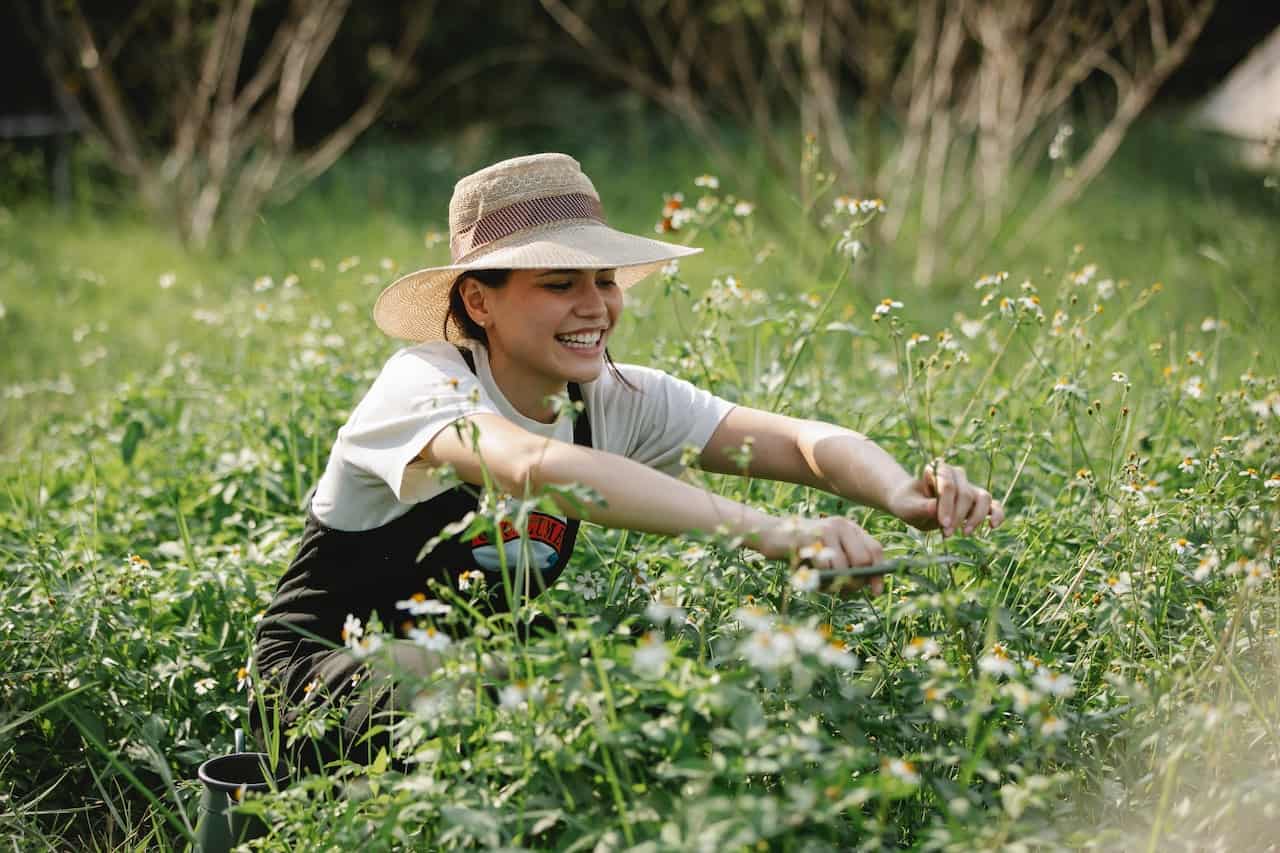
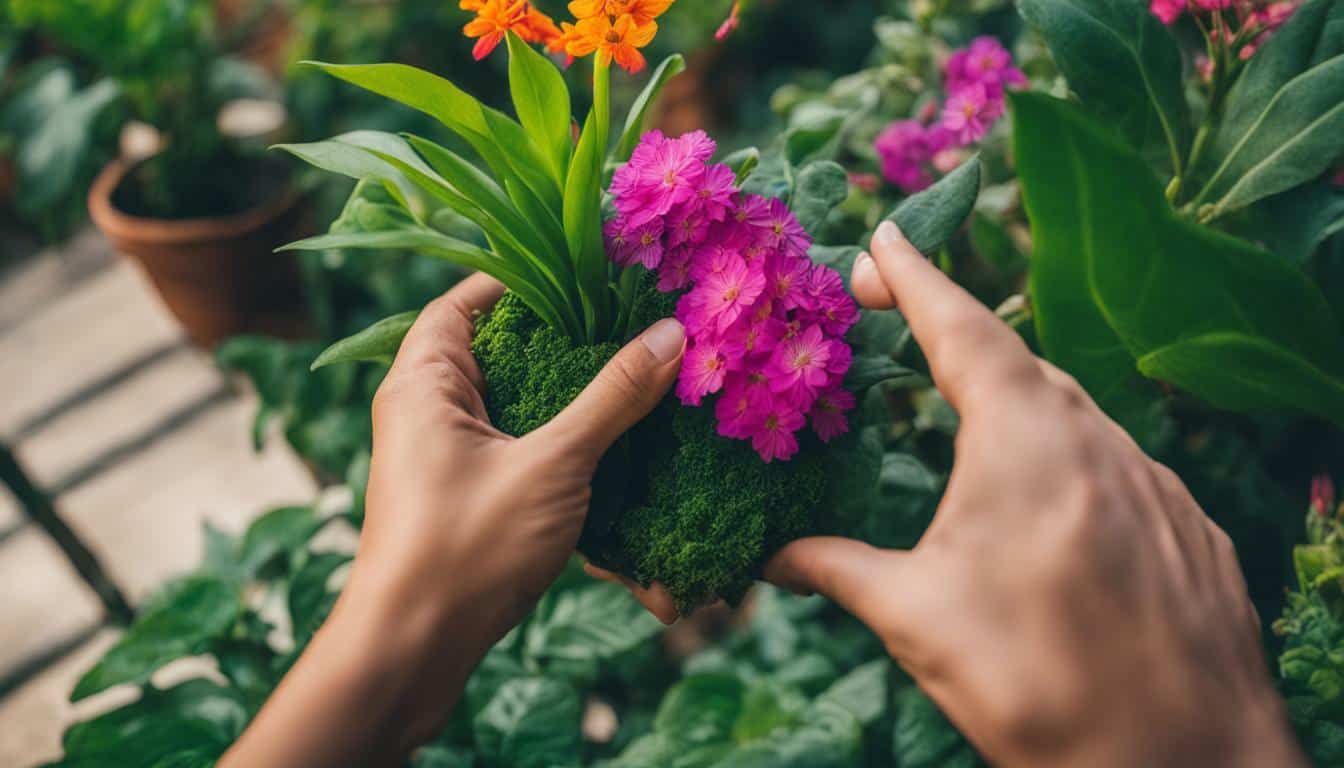
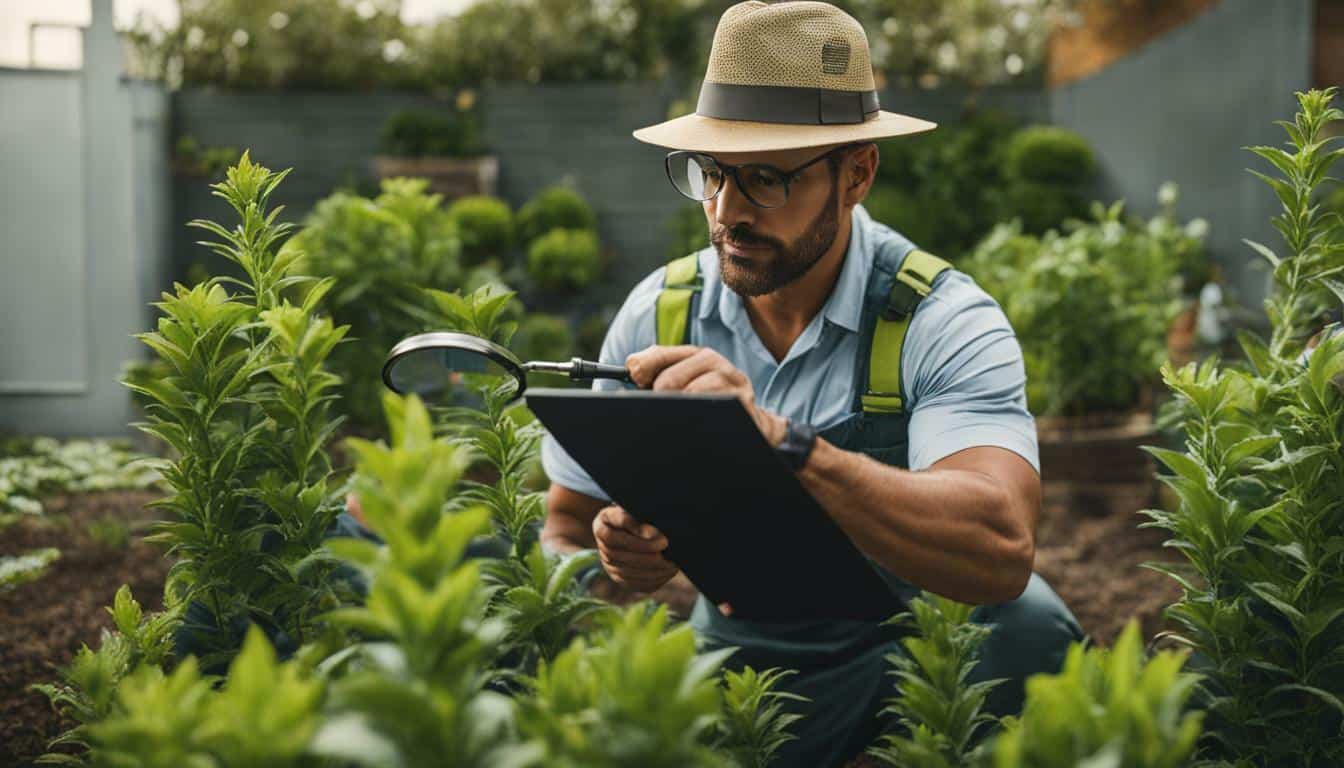

Leave a Reply